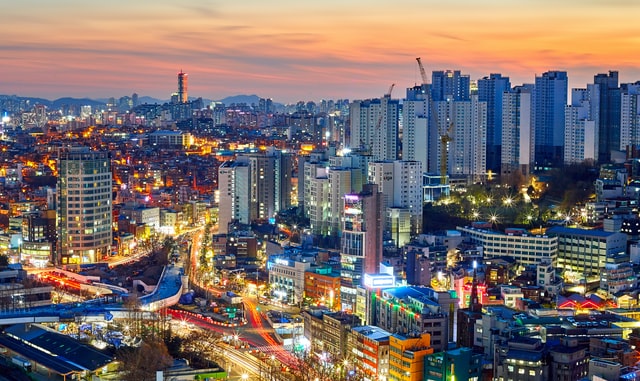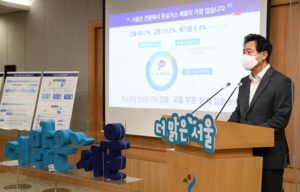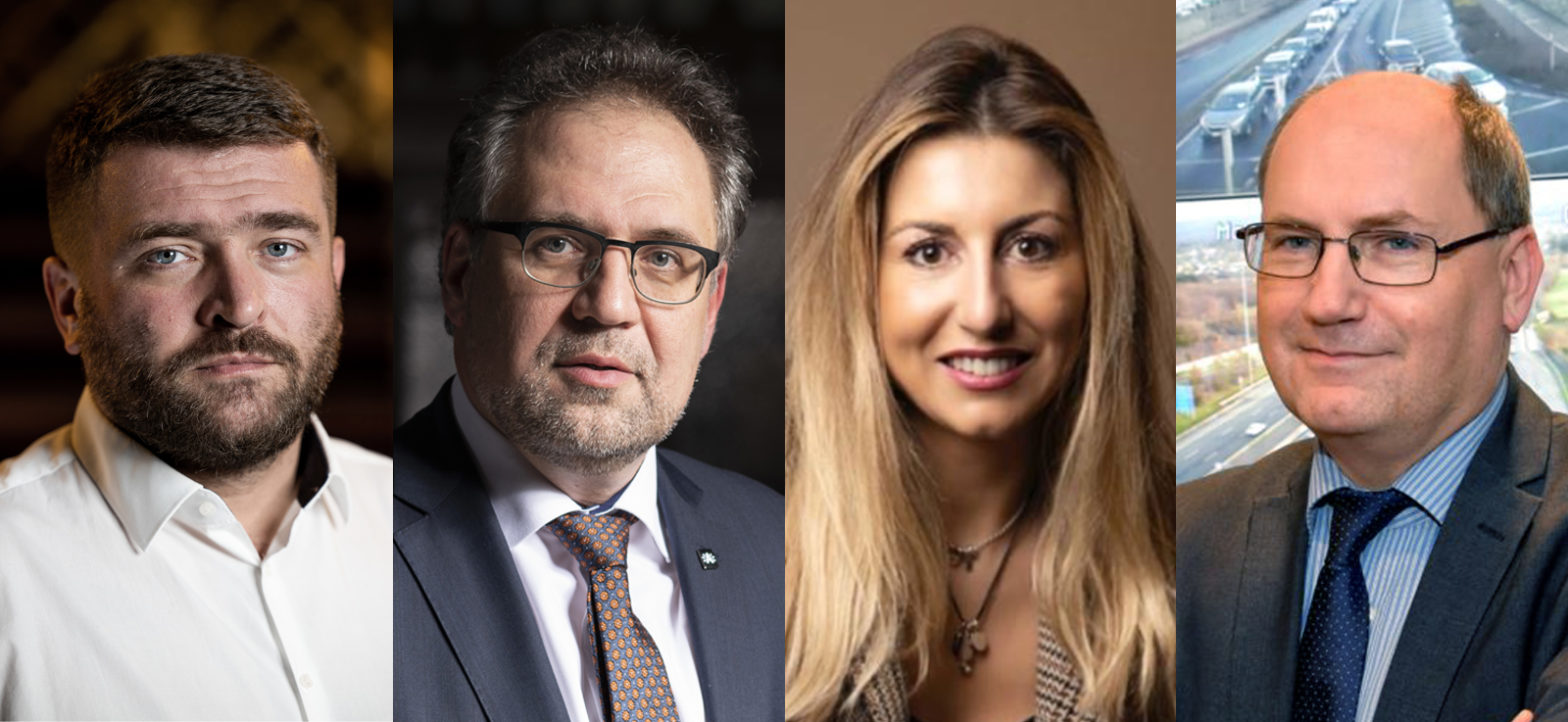
Photo: Mathew Schwartz on Unsplash
Seoul splashes out on the metaverse, smart CCTV and more
26 January 2022
by Sarah Wray
Seoul Metropolitan Government (SMG) has outlined plans to invest KRW 345.9 billion (US$287 million) this year on over 1,000 projects to “kickstart the digital transformation for the post-COVID-19 era”.
This includes establishing its own metaverse platform, expanding the use of AI-powered CCTV and developing blockchain-based services.
“The pandemic and ICT transformation brought about [uncharted] waters,” said Park Jong-Soo, Director General of Seoul’s Smart City Policy Bureau. “We will introduce new services using digital technologies and make citizens’ life more convenient and useful.”
The city is investing KRW 67.7 billion in big data, artificial intelligence (AI), Internet of Things (IoT), and blockchain. This includes advancing its big data platform, upgrading an AI-based water management service, and rolling out smart crosswalks which give visual and audio alerts when vehicles exceed the speed limit or when jay walking is detected.
SMG is developing a blockchain-based wallet application, where citizens can save over 100 types of government-issued certificates.
Supporting digital skills, particularly for older and disabled residents, is also a priority, such as training on how to use self-service kiosks, for example.
Smart CCTV
Another major outlay for the city will be extending its use of ‘smart CCTV’ which analyses footage with AI.
Out of a total 80,000 CCTV cameras across 25 autonomous districts in Seoul, around 13,000 across 13 districts are smart, and the city expects to spend KRW 37.9 billion on expansion. The cameras don’t replace human decisions – not yet, anyway – as a Seoul spokesperson told Cities Today there are still some errors in the analysis.
The city uses automatic licence plate recognition to track illegal parking and cars “on the wanted list,” and to crack down on old diesel vehicles which are barred from some areas.
AI will soon analyse CCTV and warn supervisors on construction sites when an emergency occurs. Smart CCTV is also being set up on Han River bridges to detect suicide attempts.
The use of a facial recognition function “is being considered” to locate wandering dementia patients and children but “there are no plans to use it to solve crimes such as tracking criminals,” the spokesperson said.
The American Civil Liberties Union (ACLU) has warned that AI analytics can transform cameras that collect and store video just in case “into robot guards that actively and constantly watch people.”
It calls on policy-makers to “contend with the technology’s enormous power, prohibit its use for mass surveillance, narrow its deployments, and create rules to minimise abuse”.
Seoul’s spokesperson said that information about CCTV is published online by each district.
“Personal information will be collected and used only for those who agreed to [the] privacy policy. Sensitive information of unspecified people without consent will be de-identified [to] minimise problems of privacy invasion,” they added.
Into the metaverse
In November last year, Seoul was the first city to announce its plans in the metaverse and will invest KRW 7 billion this year to establish ‘Metaverse Seoul’ in a bid to offer more communication channels for residents.
Eventually, the city plans to create a metaverse environment for all administrative services, including economy, education, culture, and tourism.
Several cities in China have also announced metaverse ambitions but Jonathan Reichental, former CIO for the City of Palo Alto and author of Smart Cities for Dummies, doesn’t expect it to be a priority for others.
“You’re always going to get these outlier cities who want to be seen as leading-edge but many cities are just beginning to embrace social media, they have pretty bad websites,” he said. “As public agencies, we’re not always doing particularly well at some of the older tech, never mind looking at some of the newer tech.”
He believes the headset requirement could also be an obstacle to the metaverse taking off more broadly in the near term.
In future, though, Reichental thinks “the metaverse as an immersive virtual environment is extremely compelling and has a big role in our cities.”
For now, his advice is “watch and learn, but focus on the day job.”
Climate plan

This month, Seoul Mayor Oh Se-hoon also outlined a five-year climate action plan towards achieving carbon neutrality by 2050, cutting 35 million tons of carbon emissions.
SMG will invest KRW 10 trillion over the next five years, with a focus on improving the energy-efficiency of old buildings, which account for 69 percent of all emissions, accelerating the adoption of electric vehicles, and adding more greenery to combat heat and pollution.
Image: Mathew Schwartz on Unsplash











